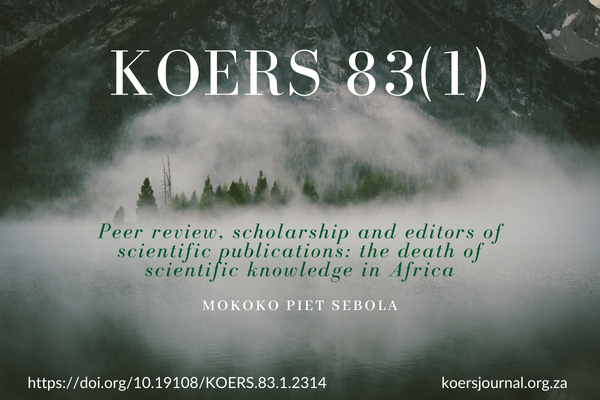Abstract
This paper argues that the manner in which the scholarship peer review as a process of scientific quality is conducted and perceived in the editorial arena is a cause of insufficient knowledge production in Africa and developing countries. Arguments still persist that the developing countries such as Africa contribute at least 1.25% of the world knowledge production. This paper does not aim to support the idea that the peer review process of scholarship in the publication of scientific material is unnecessary, but argues that the manner
of using it to judge scholarship quality is often flawed in many academic publications. This paper uses an analytical approach from literature sources to argue that the usage of peer review without considering the complex process affecting peer review will result in the death of knowledge in the academic enterprise of developing countries such as Africa. This paper concludes that only if editors of scientific publishing can conduct peer reviews in an ethical manner without biasedly directing knowledge, knowledge generation will increase to solve economic problems in Africa.

This work is licensed under a Creative Commons Attribution-NoDerivatives 4.0 International License.
Copyright (c) 2018 Mokoko Piet Sebola


_31.png) https://doi.org/10.19108/KOERS.83.1.2314
https://doi.org/10.19108/KOERS.83.1.2314